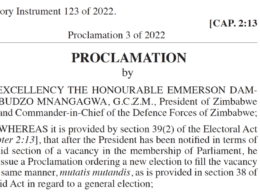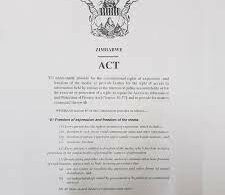Over the years, Zimbabwe has been marred with reports and allegations of human rights abuses and arbitrary arrests.
Most individuals who fall victim to these are members of opposition parties and activists who speak out against the Zanu-PF regime.
Recent reports have revealed varied statistics of the arbitrary arrests that victims have been subjected to, in most cases, the victims are allegedly denied access to free and fair trials. They are incarcerated for long periods pre-trial without being granted access to bail.
According to the 2023 Country Reports on Human Rights Practices: Zimbabwe, NGO Zimbabwe Peace Project recorded 384 human rights abuses in August, including threats, harassment, intimidation, assault, and arson, two-thirds of which were perpetrated by ZANU-PF members or FAZ.
Furthermore, the 2023 Human Rights Commission Report showed that between 2019 and 2023, there were 237 cases of alleged torture and 456 cases of arbitrary arrests and detentions reported to the Zimbabwe Human Rights Commission (ZHRC).
The most recent case is that of 78 opposition party Citizens Coalition for Change (CCC) members, Jameson Timba and others were arbitrarily arrested in June while commemorating the Day of the African Child.
On many occasions, the government has been accused of violating what the international law stipulates in terms of dealing with issues of human rights and arbitrary arrests.
Here are the Principles and Guidelines on the Right to a Fair Trial and Legal Assistance in Africa, 2003 according to the African Commission on Human and Peoples’ Rights.
Section M outlines the provisions applicable to arrest and detention.
It provides that;
1. Right to liberty and security
(b) States must ensure that no one shall be subject to arbitrary arrest or detention, and that arrest, detention or imprisonment shall only be carried out strictly in accordance with the provisions of the law and by competent officials or persons authorized for that purpose, pursuant to a warrant, on reasonable suspicion or for probable cause.
(e) Unless there is sufficient evidence that deems it necessary to prevent a person arrested on a criminal charge from fleeing, interfering with witnesses or posing a clear and serious risk to others, States must ensure that they are not kept in custody pending their trial. However, release may be subject to certain conditions or guarantees, including the payment of bail.
(g) States shall ensure, including by the enactment of legal provisions, that officials or other persons who arbitrarily arrest or detain any person are brought to justice.







